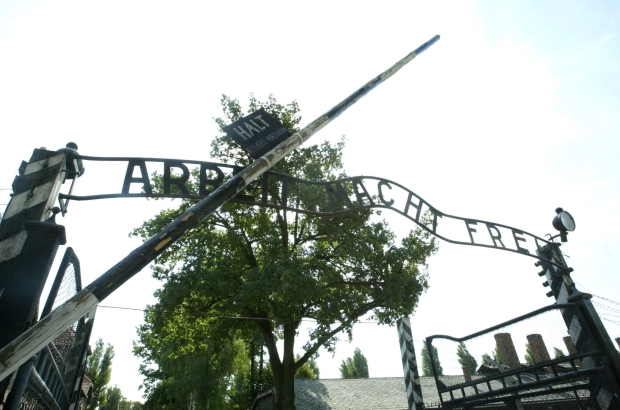- Daily & Weekly newsletters
- Buy & download The Bulletin
- Comment on our articles
SNCB's role in Auschwitz deportations to be investigated
The Belgian government has ordered an independent study into the role of the SNCB in the deportations directed by the Nazi authorities during the second world war. This study may open the way for reparations, as in the Netherlands.
Between 1942 and 1944, the Belgian railways deported more than 25,000 Jews and Roma to Auschwitz. The victims were brought from all over the country to the Dossin barracks in Mechelen, where they were put on freight trains to the extermination camp.
The role of the national railway company has never been thoroughly explored, unlike in France, the Netherlands and Germany.
The federal government and the senate are now jointly requesting an independent investigation. The Study Centre for War and Contemporary Society (CegeSoma) is to investigate exactly what role the SNCB played in the Holocaust.
CegeSoma already established in 2007 in a report that the Belgian government services generally carried out the German orders without protest but the responsibility of the railways was only briefly touched upon.
"Basically, what we know is that the deportations were done by Belgian trains and Belgian drivers," said historian Nico Wouters, head of CegeSoma. "We also know that there was little protest against the transports, simply because it wasn’t widely known. Moreover, the German hold on the SNCB was extensive from 1940 on.
"The story is not black and white. For example, many employees of the SNCB were members of the resistance. Whether they ever protested or attempted sabotage are some of the questions under investigation.
"This is about a Belgian government company and its responsibility under a hostile occupier. Who is responsible? Was there room to resist?”
When an investigation in 2018 revealed that the Dutch railways had made money from the deportations, the company paid millions in damages to survivors and next of kin. In Belgium, the Jewish community also pushed for an investigation, but things are only now beginning to move.
“We take this very seriously. We think that light should be shed on this,” said an SNCB spokesman.
According to federal mobility minister Georges Gilkinet: "It is our duty to look history straight in the eye, especially now that racism and polarization dominate the public debate."
He and senate president Stéphanie D'Hose took advantage of it being International Holocaust Remembrance Day this week to launch the investigation.
The investigation could lead to reparations. According to MP Michael Freilich, in addition to the fundamental questions, some financial questions also need to be answered. “For example, was the SNCB paid by the Germans or not? And is it true that the SNCB asked some Jews to pay for their own train ticket?
"If it turns out that the SNCB has benefited from the deportations, then it would only be correct that that money is used in one way or another to keep the memory of the Holocaust alive.”



















Comments
We're in 2022...